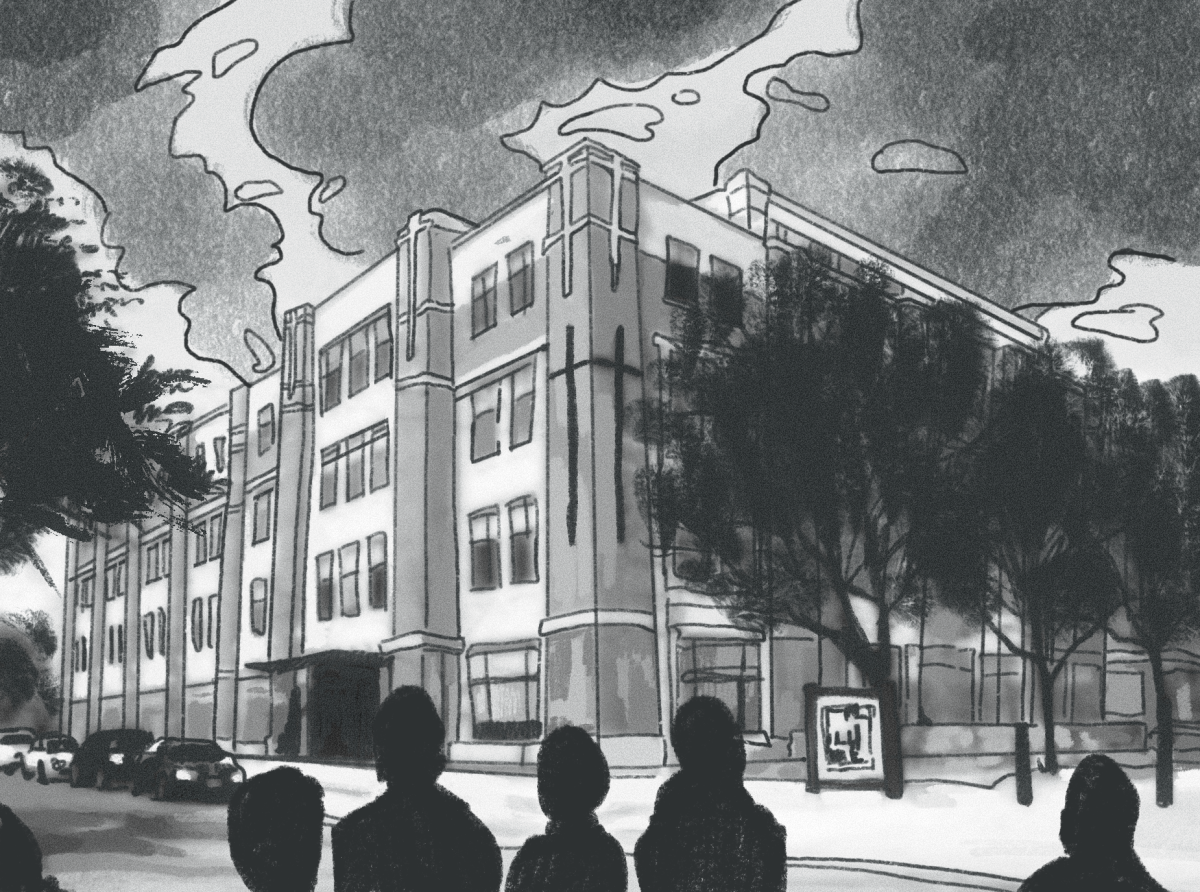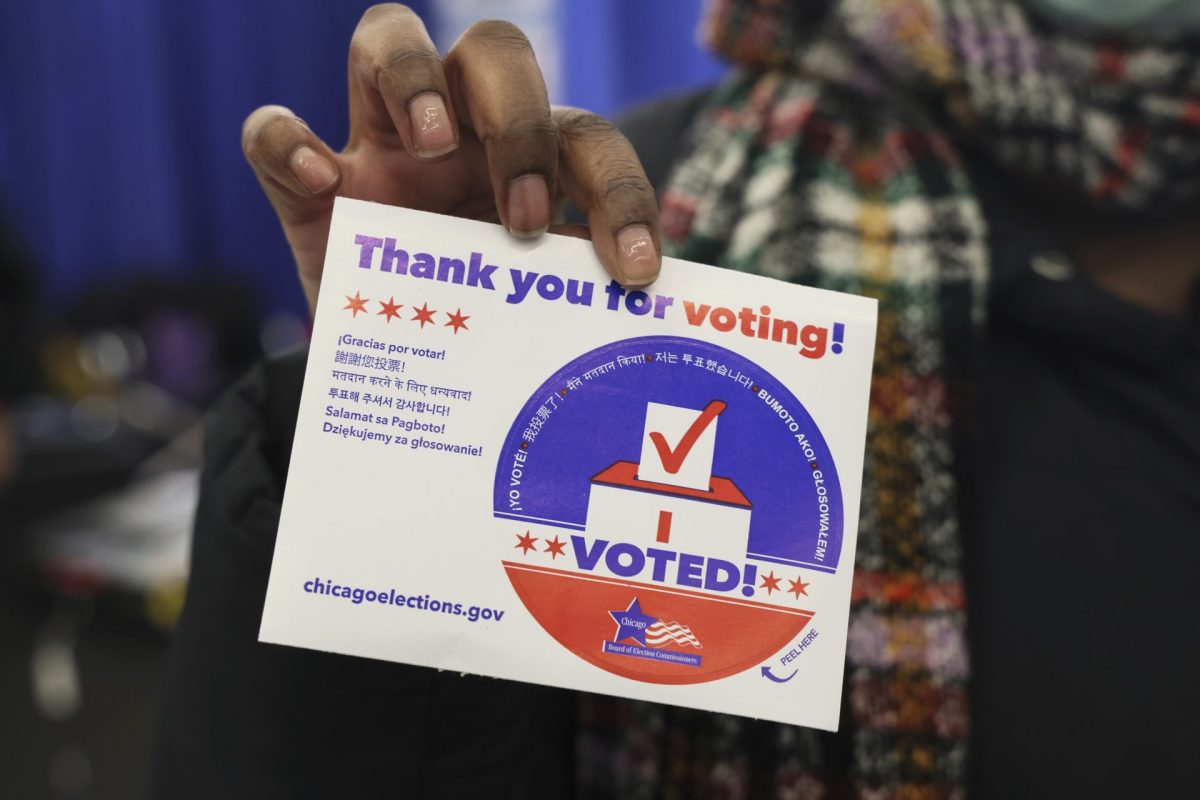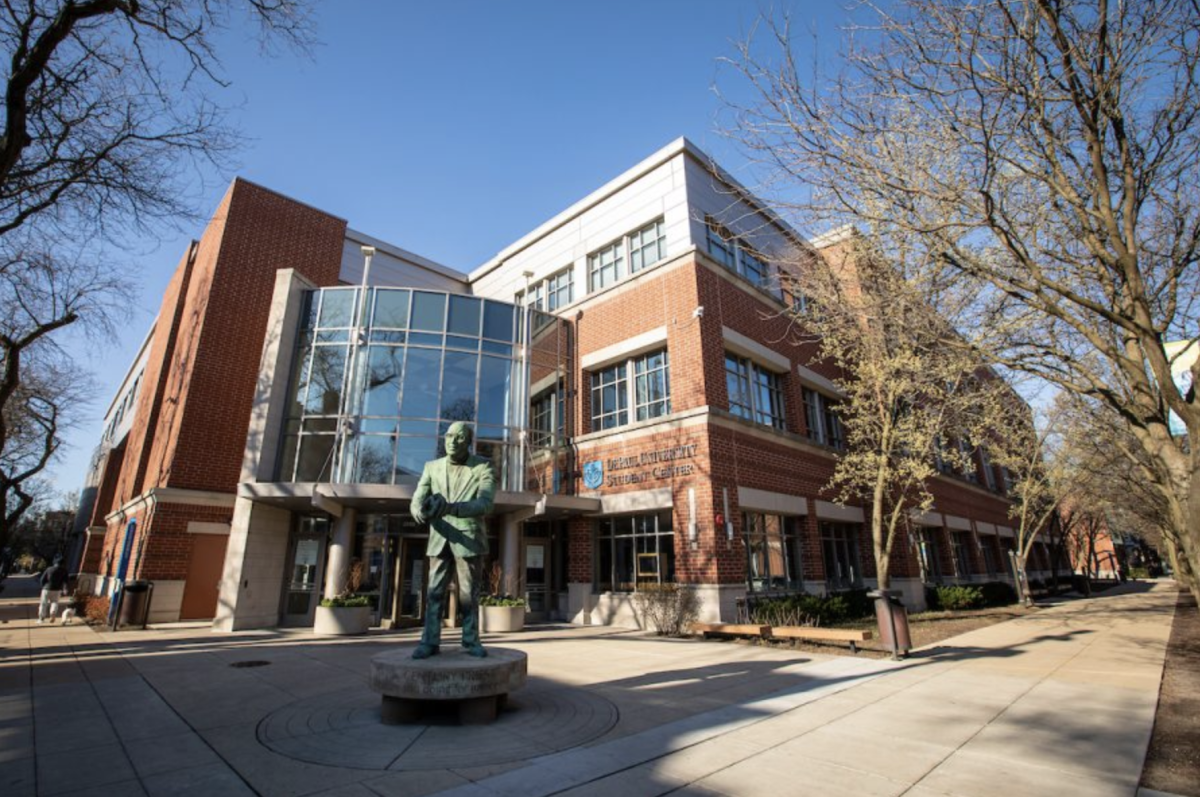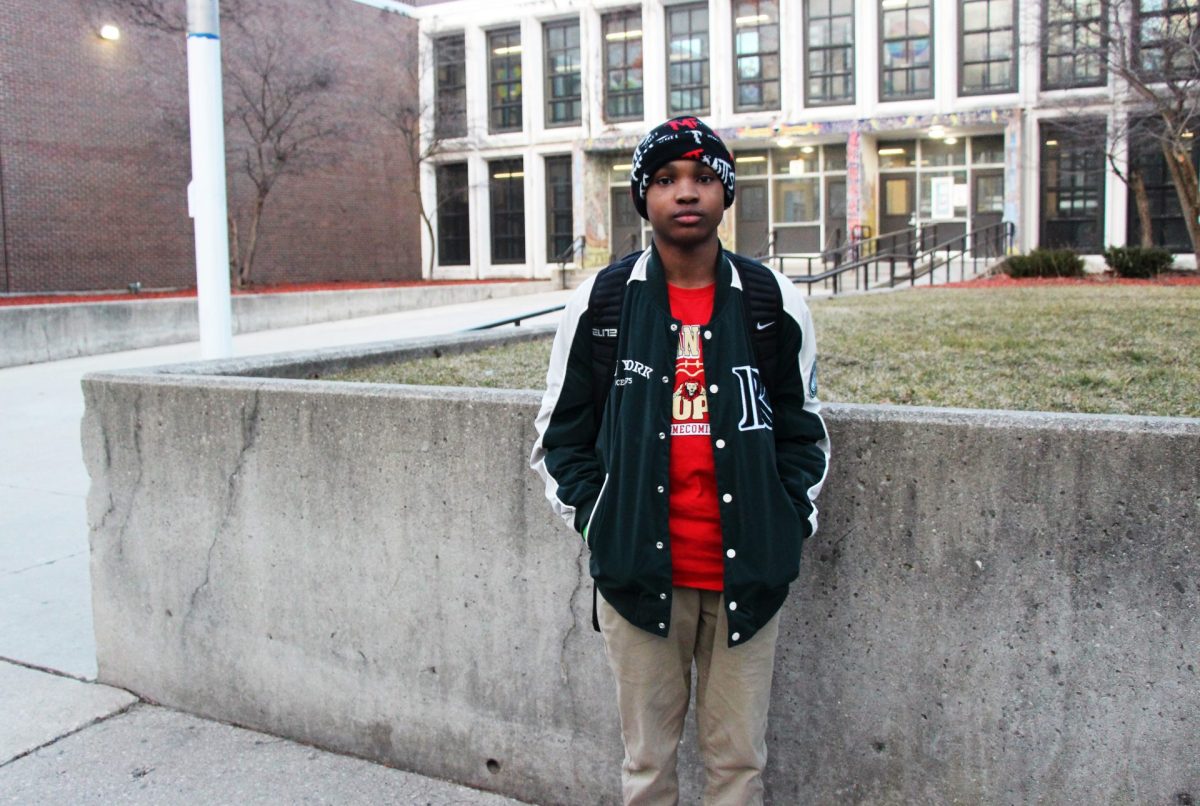The Students for Justice in Palestine (SJP) group at DePaul put up a “mock apartheid wall” in St. Vincent’s Circle just off the Quad last Monday, May 12 to raise awareness about the Israeli-Palestinian conflict.
The front of the five-panel wooden wall faced the John T. Richardson Library displaying the Palestinian flag with information about Palestinian land loss, casualties due to the conflict and U.S. aid to Israel. The last panel featured pro-Palestinian statements such as “Right of Return,” “Stop Building Illegal Settlements” and “End Siege on Gaza.”
The front of the wall was painted by students in Loyola University’s Students for Justice in Palestine group, who lent the

wall to DePaul’s SJP chapter to display.
The back of the wall facing the Schmitt Academic Center featured information about SJP’s “DePaul Divest” campaign, which is advocating for the university to divest from corporations whose products support Israel. The campaign successfully added a question to the SGA ballot for the upcoming elections next week that asks student voters, “Do you think DePaul should divest from corporations that directly fund human rights violations in Palestine?”
“The main goal (of the wall) is to just get people talking about divestment,” SJP member Roya Naderi said. “You want it to be a part of everyday vocabulary. This is not a conflict. It’s occupation. This is apartheid. These kinds of things shouldn’t be questions. They should be known.”
The wall was unveiled this week to coincide with Nakba Day on May 15. For Israelis, May 15 commemorates the day they gained independence in 1948. For Palestinians, it commemorates their subsequent displacement in the years following.
According to junior Adeeba Mabruk, the vice president of SJP, the wall in St. Vincent’s Circle symbolized the separation barrier built by the Israeli government in 2002 as protection against suicide bombings. Mabruk said the placement of their wall in St. Vincent’s Circle represented the difficulty that Palestinians experience when trying to cross to the Israeli side. The wall is big enough that students had to walk on the grass to get around it.
“If it was hard for you to get from class to class because you have to walk around something, it’s not that simple in Palestine,” Mabruk said. “It’s a bit simpler here.”
In response to the mock wall, some students from DePaul’s Jewish fraternity Alpha Epsilon Pi gathered nearby Tuesday afternoon with a sign that read “Want a less hate-fueled opinion? Come talk to us!”
Caleb Bromberg, junior and member of the fraternity, said he disagreed with SJP’s use of the word “apartheid” in labeling a wall built for the purpose of protection.
“When people say that Israel does not have a right to exist and does not have the right to protect its citizens, that makes me feel incredibly uncomfortable on this campus as a Jew and as a supporter of Israel,” Brombergsaid. “I think the message is more anti-Semitic than anti-Zionist.”
Both groups were encouraging students to stop by and discuss the issues about the conflict in Israel and Palestine.
“There is always two sides to every story,” Ariel Gan, freshman and member of the fraternity, said. “Just having this huge wall out here is completely one-sided, so we decided to come out here and give everyone another perspective. That’s really all we’re trying to do.”
Naderi said one of the main goals of the wall on DePaul’s campus was not just to educate students about the conflict and the DePaul Divest campaign, but also to raise awareness about the ways students can make their voices heard on campus.
“We’re not trying to solve any kind of conflict,” Naderi said. “That’s not what this movement is about. This is solely about getting our university to withdraw its funds from corporations that profit off of human rights abuses. And maybe this can be used to start up other campaigns.”













